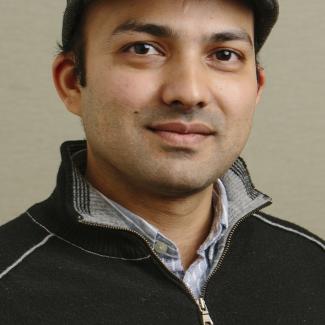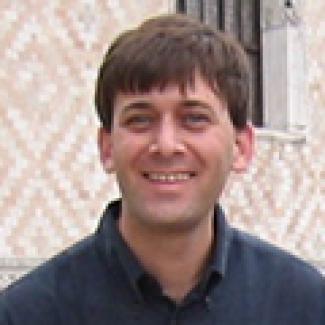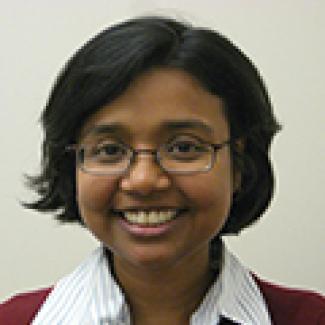
Analysis of large datasets of potentially sensitive private information about individuals raises natural privacy concerns. Differential privacy is a recent area of research that brings mathematical rigor to the problem of privacy-preserving analysis of data. Informally the definition stipulates that any individual has a very small influence on the (distribution of the) outcome of the computation. Thus an attacker cannot learn anything about an individual's report to the database, even in the presence of any auxiliary information she may have. A large and increasing number of statistical analyses can be done in a differentially private manner while adding little noise. This has been made possible in part by deep connections to learning theory, convex geometry, communication complexity, cryptography and robust statistics. This workshop will bring together differential privacy researchers and statisticians, with the goal of exploring connections between the two fields: from enabling practical, accurate and differentially private data analyses on large datasets, to connections between statistical concepts (such as robustness, sparse regression, and multiple hypothesis testing) and differential privacy.
Enquiries may be sent to the organizers at this address.
Support is gratefully acknowledged from:
Alex Andoni (Microsoft Research), Nina Balcan (Georgia Institute of Technology), Leonid Barenboim (Ben-Gurion University of the Negev), Peter Bartlett (UC Berkeley), Yoav Benjamini (Tel Aviv University), Ivona Bezáková (Rochester Institute of Technology), Abhishek Bhowmick (University of Texas, Austin), Peter Bickel (UC Berkeley), Josh Bloom (UC Berkeley), Avrim Blum (Carnegie Mellon University), Sébastien Bubeck (Princeton University), Aydin Buluç (Lawrence Berkeley National Laboratory), Amit Chakrabarti (Dartmouth College), Kamalika Chaudhuri (UC San Diego), Xi Chen (Carnegie Mellon University), Jim Demmel (UC Berkeley), John Duchi (UC Berkeley), Nick Duffield (Rutgers University/DIMACS), Cynthia Dwork (Microsoft Research), Noureddine El Karoui (UC Berkeley), Vitaly Feldman (IBM Research), Michael Friedlander (University of British Columbia), David Gleich (Purdue University), Alex Gray (Georgia Institute of Technology), Abhradeep Guha Thakurta (Stanford University and Microsoft Research), Anupam Gupta (Carnegie Mellon University), Moritz Hardt (IBM Almaden), Daniel Hsu (Columbia University), Justin Hsu (University of Pennsylvania), Zhiyi Huang (Stanford University), Martin Jaggi (École Polytechnique), Prateek Jain (Microsoft Research India), Michael Jordan (UC Berkeley), Sagar Kale (Dartmouth College), Ravi Kannan (Microsoft Research India), Shiva Kasiviswanathan (GE Global Research), Valerie King (University of Victoria), Mladen Kolar (Carnegie Mellon University), Jakub Konečný (University of Edinburgh), Aleksandra Korolova (Stanford University), Jing Lei (Carnegie Mellon University), Jian Li (Tsinghua University), Yi Li (University of Michigan), Katrina Ligett (California Institute of Technology), Han Liu (Princeton University), Ashwin Machanavajjhala (Duke University), Michael Mahoney (Stanford University), Andrew McGregor (University of Massachusetts), Frank McSherry (Microsoft Research), Ilya Mironov (Microsoft Research), Ankur Moitra (Institute for Advanced Study), Claire Monteleoni (George Washington University), Muthu Muthukrishnan (Rutgers University and Microsoft Research India), Moni Naor (Weizmann Institute), Jennifer Neville (Purdue University), Andrew Ng (Stanford University), Sasho Nikolov (Rutgers University), Kobbi Nissim (Ben-Gurion University), Rob Nowak (University of Wisconsin-Madison), Sang-Yun Oh (Stanford University), Art Owen (Stanford University), Toni Pitassi (University of Toronto), Ely Porat (Bar-Ilan University), Eric Price (Massachusetts Institute of Technology), Sofya Raskhodnikova (Pennsylvania State University), Benjamin Recht (UC Berkeley), Omer Reingold (Microsoft Research), Peter Richtarik (University of Edinburgh), Aaron Roth (University of Pennsylvania), Anand Sarwate (Toyota Technological Institute at Chicago), Leonard Schulman (California Institute of Technology), Or Sheffet (Carnegie Mellon University), Aleksandra Slavković (Pennsylvania State University), Adam Smith (Pennsylvania State University), Dawn Song (UC Berkeley), Nikhil Srivastava (Microsoft Research India), Philip Stark (UC Berkeley), Daniel Stefankovic (University of Rochester), Mario Szegedy (Rutgers University), Kunal Talwar (Microsoft Research), Justin Thaler (Harvard University), Joel Tropp (California Institute of Technology), David Tse (UC Berkeley), Caroline Uhler (IST Austria), Jonathan Ullman (Harvard University), Greg Valiant (Stanford University), Suresh Venkatasubramanian (University of Utah), Pramod Viswanath (University of Illinois, Urbana-Champaign), Jan Vondrák (IBM Almaden), Martin Wainwright (UC Berkeley), Rebecca Wright (Rutgers University), Li Xiong (Emory University), Bin Yu (UC Berkeley), Li Zhang (Microsoft Research).









